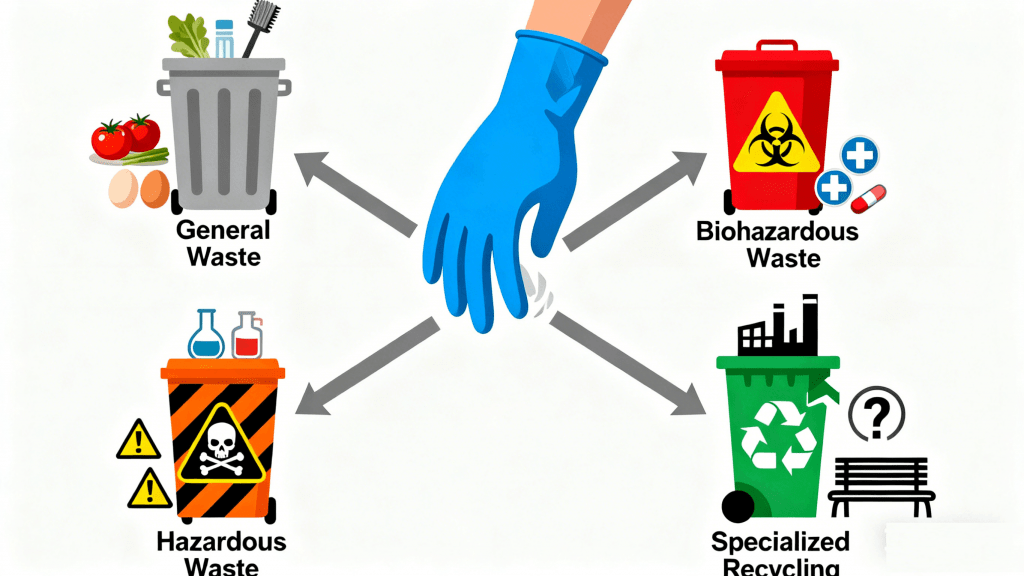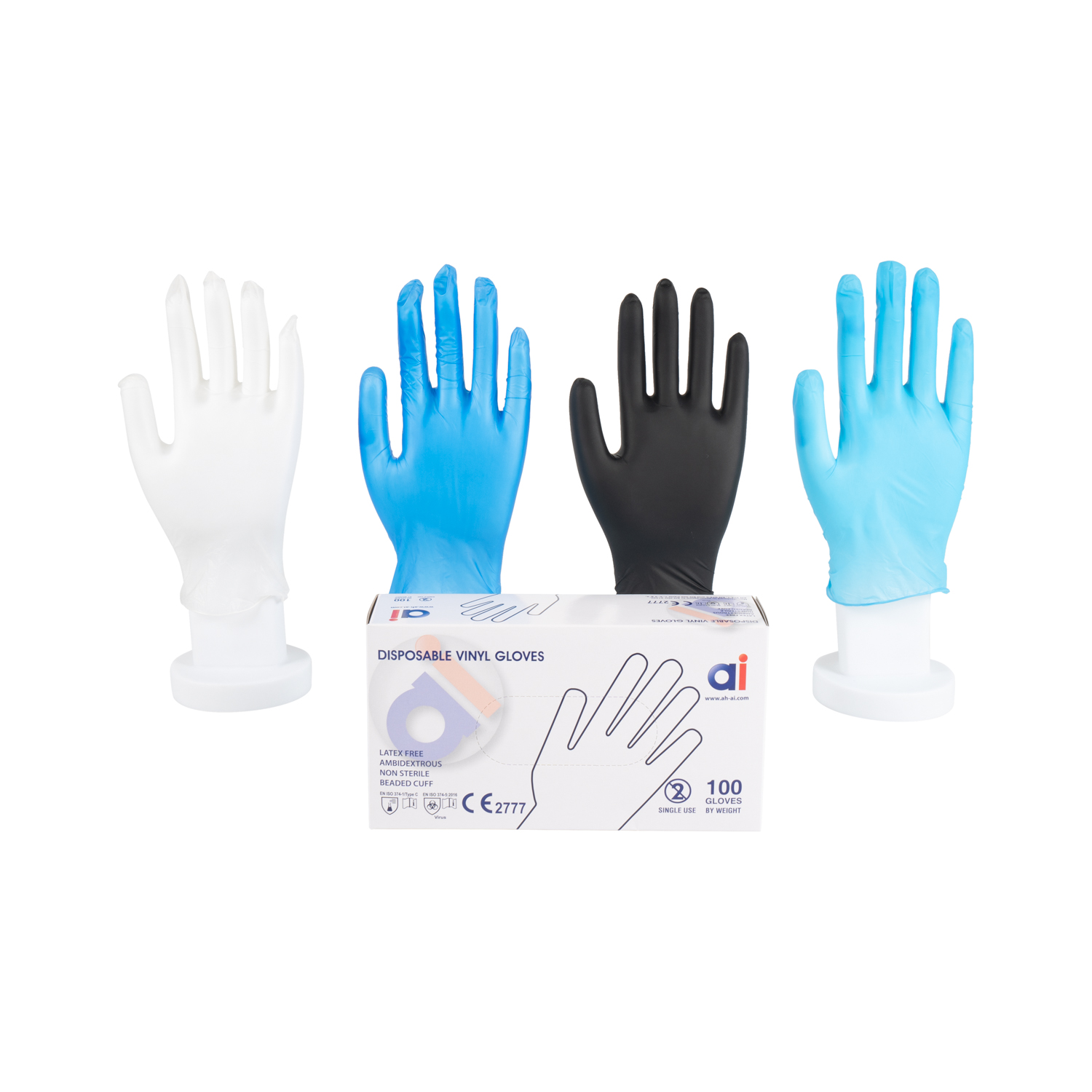Nitrile gloves are a staple in healthcare, laboratories, food service, and even household cleaning. Their durability and resistance to chemicals make them incredibly useful. However, once their job is done, a critical question arises: how do we dispose of them properly?

Improper disposal can harm the environment and pose a health risk. The correct method isn’t one-size-fits-all; it depends entirely on what the gloves were exposed to. Let’s break it down.
The Golden Rule: Know What You Were Handling
Your disposal method is determined by the contaminants on the gloves. Always err on the side of caution if you are unsure.
Scenario 1: General Use (Home, Workshop, Food Prep)
If your gloves were used for general tasks like handling non-toxic chemicals, cleaning, gardening, or food preparation, they can typically go in the regular trash.
- Step 1: Remove the gloves carefully to avoid touching the outside with your bare skin. Pinch and peel one glove off, then use the removed glove to peel off the second one, turning it inside out in the process.
- Step 2: Place the used gloves securely in a general waste bin.
- Step 3: Wash your hands thoroughly with soap and water.
Note: While nitrile is not biodegradable, this is the standard disposal method for non-hazardous waste. For a more eco-conscious option, look for specialized recycling programs (see below).
Scenario 2: In a Healthcare or Medical Setting
This includes gloves used in clinics, hospitals, or at home when caring for a sick person, especially if they were exposed to blood, bodily fluids, or infectious agents.
These gloves are considered biohazardous waste.
- Step 1: Remove the gloves using the proper technique to avoid cross-contamination.
- Step 2: Immediately dispose of them in a designated biohazardous waste container (often red or yellow and clearly marked).
- Step 3: These containers are handled by specialized medical waste services that sterilize and dispose of the contents in accordance with strict regulations, such as those from OSHA and the CDC.
When in a medical context, never place used gloves in a regular trash can.
Scenario 3: Handling Hazardous Chemicals or Materials
If you used the gloves while working with dangerous chemicals (e.g., solvents, pesticides, heavy metals), toxic materials, or radioactive substances, they are now hazardous waste.
- Step 1: Remove the gloves carefully without spreading the contaminant.
- Step 2: Place them in a container designated for hazardous waste, following your organization’s Safety Data Sheet (SDS) and hazardous waste disposal protocols.
- Step 3: This waste must be handled by licensed professionals who can treat and dispose of it without harming the environment or public health.
What About Recycling?
Traditional recycling streams cannot process used nitrile gloves due to contamination risks. However, specialized recycling programs are emerging.
- How it works: Companies like TerraCycle and some glove manufacturers (e.g., Kimberly-Clark’s RightCycle program) offer take-back services. They collect large volumes of used gloves from participating organizations, clean them, and break them down into raw materials for new products like plastic lumber and park benches.
- For Individuals: These programs are typically geared toward businesses and institutions due to the volume required. Check with your employer or local waste management facility to see if such a program is available in your area.
Summary: A Quick Disposal Guide
| If used for… | Dispose in… | Important Notes |
| General, non-hazardous tasks (cleaning, food prep) | Regular Trash | The most common method. Remove gloves carefully. |
| Healthcare, bodily fluids, sickness | Biohazardous Waste Container | Never in regular trash. Follow medical guidelines |
| Hazardous chemicals & materials | Hazardous Waste Container | Follow OSHA/SDS protocols. Requires special handling. |
| Recycling (where available) | Specialized Recycling Program | Ideal for businesses; not yet widely available for homes. |
Properly disposing of nitrile gloves is a simple yet crucial act of responsibility. By taking a moment to identify what the gloves have touched, you can prevent environmental contamination, protect waste management workers, and ensure public safety. Always remember: when in doubt, treat them as hazardous.





发表回复